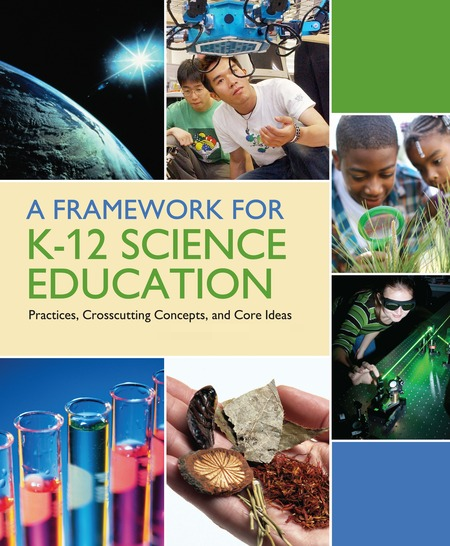An AI-Enhanced Practical Teaching Framework for Foreign Language Majors in Vocational Colleges: Design, Implementation, and Reflective Evaluation
DOI:
https://doi.org/10.63313/IJED.9005Abstract
This study addresses the critical gap between theoretical potential and practical implementation of artificial intelligence (AI) in vocational foreign language ed-ucation. Drawing upon empirical data from 353 valid student questionnaires across 13 Chinese vocational institutions and a controlled semester-long peda-gogical experiment, it designs, implements, and evaluates a comprehensive AI-integrated practical teaching framework. Results demonstrate statistically significant improvements in students' language competencies (listening, speak-ing, reading, writing, translation) and transversal skills (cross-cultural commu-nication, critical thinking) within the experimental group utilizing the AI framework, compared to the control group using traditional methods. Key in-novations include context-aware intelligent tutoring, immersive VR/AR simula-tions, and AI-driven dynamic assessment. While validating AI's efficacy, the re-search critically examines persistent challenges in technical infrastructure, educator readiness, and ethical alignment. This work provides a replicable mod-el for systemic AI integration, grounded in the "Three Integrations" (voca-tion-al-academic articulation, industry-education fusion, science-education synergy) principle, contributing actionable insights to enhance the employabil-ity and global competitiveness of vocational foreign language professionals.
References
[1] Benjamin, Ruha. Race After Technology: Abolitionist Tools for the New Jim Code. Polity Press, 2019.
[2] Bax, Stephen. "CALL—Past, Present and Future." System, vol. 31, no. 1, 2003, pp. 13-28.
[3] British Council. Artificial Intelligence and English Language Teaching: Preparing for the Future. British Council, 2024.
[4] Brown, John Seely, et al. "Situated Cognition and the Culture of Learning." Educational Re-searcher, vol. 18, no. 1, 1989, pp. 32-42.
[5] Chen, Jianshu. "Intelligent Tutoring Systems for Foreign Language Learning: Principles and Prospects". Foreign Language World, vol. 45, no. 2, 2023, pp. 110-118.
[6] Eskenazi, Maxine. "Using Automatic Speech Processing for Foreign Language Pronuncia-tion Tutoring: Some Issues and a Prototype." Language Learning & Technology, vol. 3, no. 2, 1999, pp. 62-76.
[7] Heift, Trude, and Mathias Schulze. Errors and Intelligence in Computer-Assisted Language Learning: Parsers and Pedagogues. Routledge, 2007.
[8] Hockly, Nicky. "Automated Writing Evaluation." ELT Journal, vol. 73, no. 3, 2019, pp. 313-320.
[9] Kessler, Greg. "Technology and the Future of Language Teaching." Foreign Language Annals, vol. 51, no. 1, 2018, pp. 43-51.
[10] Kohnke, Lucas, et al. "Generative AI and Language Learning: Exploring Pedagogical Appli-cations." TESOL Quarterly, vol. 57, no. 3, 2023, pp. 1021-1030.
[11] Lin, Chih-Cheng, and Yu-Ju Lan. "Language Learning in Virtual Reality Environments: Past, Present, and Future." Journal of Educational Technology & Society, vol. 18, no. 4, 2015, pp. 486-497.
[12] Ministry of Education, China. Action Plan for Integration, Empowerment and Quality En-hancement of Vocational Education and Industry (2023-2025). MOE, 2023.
[13] Noble, Safiya Umoja. Algorithms of Oppression: How Search Engines Reinforce Racism. NYU Press, 2018.
[14] Pennycook, Alastair. Critical Applied Linguistics: A Critical Reintroduction. 2nd ed., Routledge, 2021.
[15] Pérez-Paredes, Pascual, and M. Camino Bueno-Alastuey. "A Systematic Review of the Use of Corpus Tools in L2 Vocabulary Learning." Computer Assisted Language Learning, vol. 32, no. 4, 2019, pp. 441-467.
[16] Regan, Priscilla M., and Jolene Jesse. "Ethical Challenges of EdTech, Big Data and Personal-ized Learning: Twenty-First Century Student Sorting and Tracking." Ethics and Infor-mation Technology, vol. 21, 2019, pp. 167-179.
[17] Selwyn, Neil. Should Robots Replace Teachers? AI and the Future of Education. Polity Press, 2019.
[18] Shadiev, Rustam, and Mengke Yang. "Review of Research on Mobile-Assisted Language Learning in Familiar, Authentic Environments." British Journal of Educational Technology, vol. 51, no. 3, 2020, pp. 101-114.
[19] Stevenson, Marie, and Aek Phakiti. "The Effects of Computer-Generated Feedback on the Quality of Writing." Assessing Writing, vol. 19, 2014, pp. 84-99.
[20] Wang, Lixun, and Zhiyuan Yuan. "Research on the Reform Path of Practical Teaching Sys-tem for Foreign Language Majors in Higher Vocational Colleges under the Background of 'Three Integrations'". Vocational and Technical Education, vol. 44, no. 32, 2023, pp. 76-81.
[21] Warschauer, Mark, and Deborah Healey. "Computers and Language Learning: An Over-view." Language Teaching, vol. 31, no. 2, 1998, pp. 57-71.
[22] Xiao, Huafeng. "Research on the Construction of Practical Teaching System for Business English Majors in Higher Vocational Colleges Based on OBE Concept". Journal of Hubei Open Vocational College, vol. 36, no. 1, 2023, pp. 4-7.
[23] Yang, Yu-Fen, et al. "Affordances and Challenges of Artificial Intelligence in Language Edu-cation: A Systematic Review." Educational Technology & Society, vol. 26, no. 1, 2023, pp. 1-17.
[24] Zou, Bin, et al. "Computer-Assisted Translation Tools in Translator Training: A Survey of Student Perceptions and Use." The Interpreter and Translator Trainer, vol. 15, no. 1, 2021, pp. 1-18.
Downloads
Published
Issue
Section
License
Copyright (c) 2025 by author(s) and Erytis Publishing Limited.

This work is licensed under a Creative Commons Attribution-ShareAlike 4.0 International License.






















